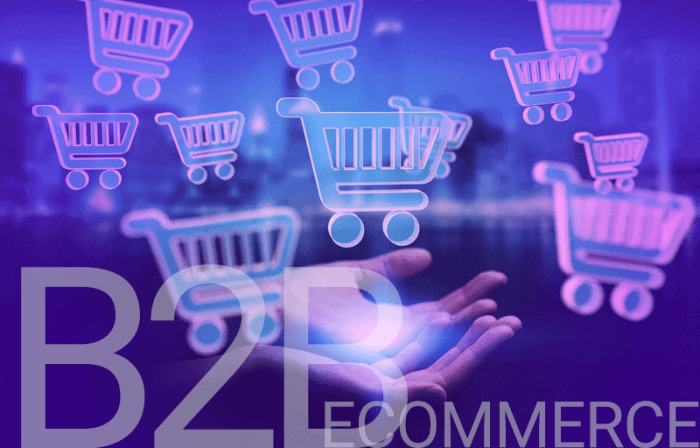Embarking on an exploration of which of the statements about b2b e-commerce is correct, this discourse unveils a multifaceted topic with profound implications for contemporary business practices. Delving into the distinctive characteristics, advantages, and challenges associated with B2B e-commerce, this analysis provides a comprehensive understanding of its transformative impact on modern commerce.
The ensuing paragraphs will illuminate the intricacies of B2B e-commerce, unraveling the benefits it offers in terms of cost reduction, operational efficiency, and enhanced customer engagement. Furthermore, it will shed light on the unique challenges that businesses encounter in implementing e-commerce solutions, including managing extensive product catalogs, facilitating complex transactions, and ensuring robust data security.
Business-to-Business (B2B) E-commerce Overview

B2B e-commerce, short for business-to-business electronic commerce, refers to the exchange of goods, services, or information between businesses through an electronic platform. It encompasses a wide range of activities, including online marketplaces, vendor-managed inventories, and electronic data interchange (EDI).
B2B e-commerce has gained significant importance in modern business due to its ability to streamline operations, reduce costs, and enhance customer service. It differs from other forms of e-commerce, such as business-to-consumer (B2C), in several key aspects, including the complexity of transactions, the size of orders, and the importance of relationships between buyers and sellers.
Benefits of B2B E-commerce, Which of the statements about b2b e-commerce is correct
B2B e-commerce offers numerous benefits to businesses, including:
- Cost savings:Automating processes, reducing inventory costs, and negotiating better prices through online marketplaces.
- Efficiency improvements:Streamlining order processing, reducing lead times, and improving communication with suppliers.
- Enhanced customer service:Providing customers with real-time order tracking, access to product information, and online support.
- Improved decision-making:Accessing real-time data on sales, inventory, and customer behavior to make informed decisions.
- Increased market reach:Expanding customer base by reaching businesses across geographical boundaries.
Challenges of B2B E-commerce
While B2B e-commerce offers significant benefits, it also presents certain challenges, including:
- Managing large product catalogs:Maintaining and updating extensive product databases with accurate information and images.
- Handling complex transactions:Processing large orders, managing multiple payment methods, and handling returns and exchanges.
- Ensuring data security:Protecting sensitive business information, such as financial data, customer records, and trade secrets.
- Integrating with legacy systems:Connecting e-commerce platforms with existing enterprise resource planning (ERP) and other business systems.
- Building trust with customers:Establishing credibility and trust in an online environment where face-to-face interactions are limited.
Common Queries: Which Of The Statements About B2b E-commerce Is Correct
What are the key benefits of B2B e-commerce?
B2B e-commerce offers numerous benefits, including reduced costs, improved efficiency, enhanced customer service, expanded market reach, and increased sales opportunities.
What are the common challenges faced in B2B e-commerce implementations?
B2B e-commerce implementations can encounter challenges such as managing large product catalogs, handling complex transactions, ensuring data security, integrating with existing systems, and addressing organizational resistance to change.
What are the latest trends and innovations shaping B2B e-commerce?
B2B e-commerce is constantly evolving, with trends such as the rise of artificial intelligence, omnichannel strategies, mobile commerce, personalized experiences, and data-driven decision-making gaining prominence.

